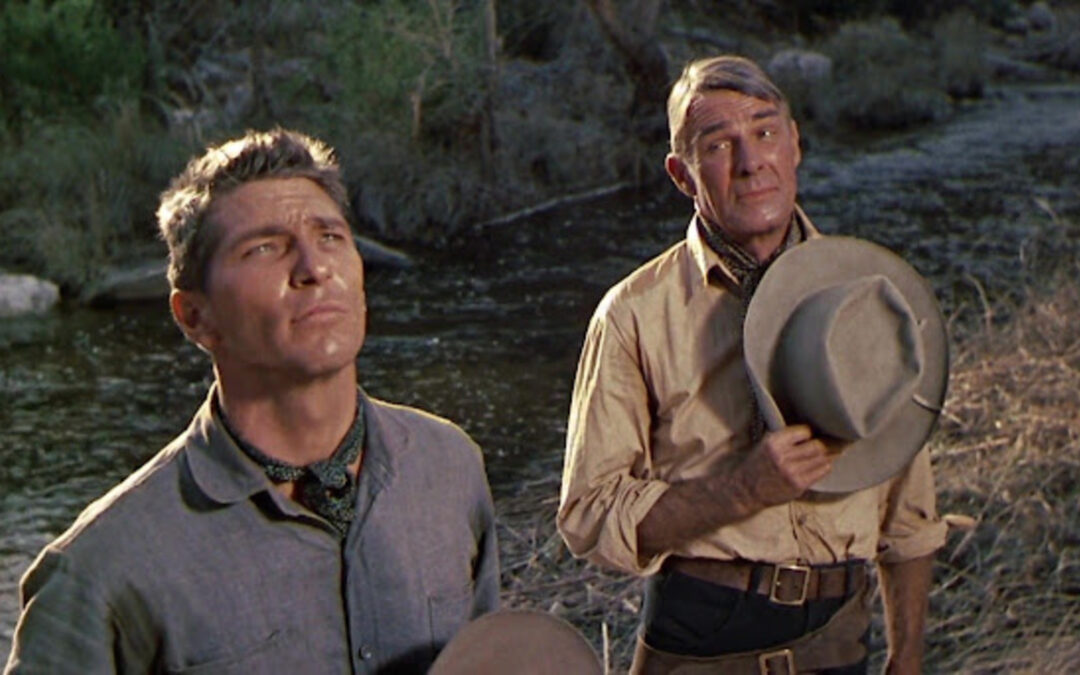As I revisit the Boetticher/Scott Westerns, Buchanan Rides Alone is my third favorite of their collaborations or a possible tie for my second. Wrongfully put aside compared to the attention given to Ride Lonesome, Buchanan is a far more original and riveting picture.
A couple decisions distinguish this film from the others: 1. It spends just as much or more time with it supporting characters and villains as it does Scott. 2. There’s no love interest or significant female presence whatsoever. The former choice makes Buchanan a more balanced picture than other hero-focused Westerns. Boetticher casts a trio of brothers as his villains (Barry Kelley, Tol Avery, and Peter Whitney) and spends at least half the picture showing their schemes. Whitney is the most fun to watch as the oafish of the three, the one who comes off as dumb but might be the smartest in the end? Boetticher also spends a good deal of time with a young L.Q. Jones as Pecos. What at first seems like a simple henchman role turns into much more and demonstrates why Jones would go so far in his decades-long career.
The absence of romance in this film is refreshing. I actually did not notice on this recent viewing that there was no principal female character until halfway through. Don’t get me wrong, I love a good romance and if it fits the story, a woman or multiple women only make a film better but sometimes they feel forced into the narrative instead of integrated in a natural way. The women characters in Ride Lonesome and Decision to Sundown hurt both pictures. Here, Budd was wise to pursue a tough story with no hint of romance.
After making three movies with Scott about him avenging his wife’s death, it’s clear with Decision and Buchanan that the director was trying to do something different. In the previous picture, the attempt was only mildly successful. With this 1958 Western, he succeeds on a tremendous scale. Boetticher manages a more complicated plot without losing his lean, mean touch. The way he turns brother against brother and has Scott weave in and out of it is truly a credit to the director’s masterful storytelling ability, not to mention the fine writing of Burt Kennedy who reportedly performed a heavy rewrite on Charles Lang’s script. The finale is particularly well-crafted, a tension showdown on a bridge that gets physically and morally messy. I love how Budd defied my expectations of a major showdown between a slick gun hand and Scott, instead taking the character in a completely different direction.
Watched on YouTube


